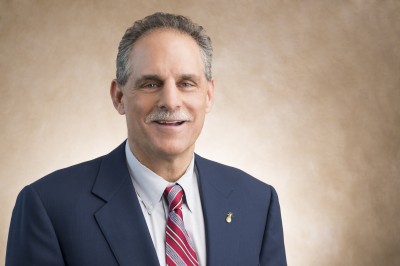NSU Newsroom
SharkBytes
Horizons
This version of NSU News has been archived as of February 28, 2019. To search through archived articles, visit nova.edu/search. To access the new version of NSU News, visit news.nova.edu.
This version of SharkBytes has been archived as of February 28, 2019. To search through archived articles, visit nova.edu/search. To access the new version of SharkBytes, visit sharkbytes.nova.edu.
NSU Medical Director Delivers Key Talk at National Society of Interventional Radiology Meeting
James Benenati, M.D., medical director of Nova Southeastern University’s College of Health Care Sciences Medical Sonography Program, delivered the opening talk March 23 at the national Society of Interventional Radiology’s 39th Annual Scientific Meeting in San Diego.
Benenati is an interventional radiologist and the medical director of both the Peripheral Vascular Laboratory at Miami Cardiac & Vascular Institute and Interventional Radiology for Baptist Health South Florida. He was invited by the society’s leadership to give the 30th annual lecture that honors one of the founding fathers of interventional radiology, Charles T. Dotter, who was nominated for the Nobel Prize in Physiology or Medicine in 1978.
“I am deeply humbled to be included among past Dotter lecturers—interventional radiology pioneers who solved difficult medical problems with creativity, innovation and research,” said Benenati, who is credited with developing one of the country’s most coveted and sought-after fellowships and best-known for his work to establish a nationally renowned accredited peripheral vascular laboratory.
The Society of Interventional Radiology (SIR) represents nearly 5,000 doctors, scientists and allied health professionals dedicated to improving healthcare through image-guided, minimally invasive treatments.
Benenati, who is much loved by his patients and respected by colleagues, continues to drive medical research to improve patient care. He has participated in research focused on abdominal aortic aneurysm repair with endografts, stents in peripheral vascular disease, prevention of restenosis in the femoral and popliteal arteries, carotid stenting, hypertension management and fibroid embolization.
Interventional radiology is a relatively recent discipline that gained legs in the past 30 years for pioneering minimally invasive medicine and innovating such commonplace technology as angioplasty and stents. Minimally invasive procedures are recognized for reducing trauma and infection rate to the body, and therefore, making for shorter hospital stays and quicker recovery.
